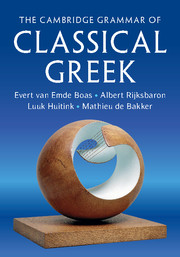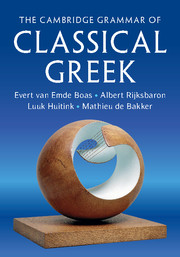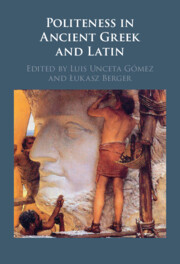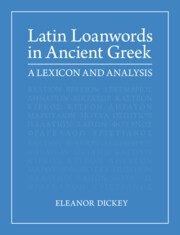Tense-Switching in Classical Greek
Tense is at its most interesting when it behaves badly. In this book Arjan Nijk investigates the variation between the past and present tenses to refer to past events in Classical Greek and beyond. Adopting a cognitive approach to the issue, he argues that the use of the present for preterite depends on the activation of implicit conceptual scenarios in which the gap between the past and the present is bridged. The book is distinguished from previous accounts by its precision in describing these conceptual scenarios, the combination of linguistic theorising with philological and statistical methods, the size of the corpus under investigation and the explicitly cross-linguistic scope. It provides a complete overview of the phenomenon of tense switching in Classical Greek, as well as new theoretical perspectives on deixis and viewpoint, and is important for classicists, narratologists and linguists of every stamp. This title is also available as Open Access on Cambridge Core.
- Gives a complete overview of the phenomenon based on a corpus of texts that is unprecedented in size in this field of research
- Uses cross-linguistic examples and provides translations of Classical Greek throughout
- Combines philological and statistical methods
Reviews & endorsements
'… this is a well-conceived and persuasive book, which will repay attention not only by scholars of ancient Greek language and literature, but also by linguists and literary scholars interested in presents for preterites beyond ancient Greek.' Philomen Probert, Bryn Mawr Classical Review
The book is a pleasure to read, and will be of lasting value for the study of the Greek language.' Michael Lloyd, Gnomon
Product details
February 2022Hardback
9781316517154
300 pages
235 × 158 × 23 mm
0.63kg
Available
Table of Contents
- Introduction
- 1. General conceptual model
- 2. Scenic narrative and the mimetic present
- 3. Summary narrative and the diegetic present
- 4. Zero-degree narrativity and the registering present
- Conclusion.







